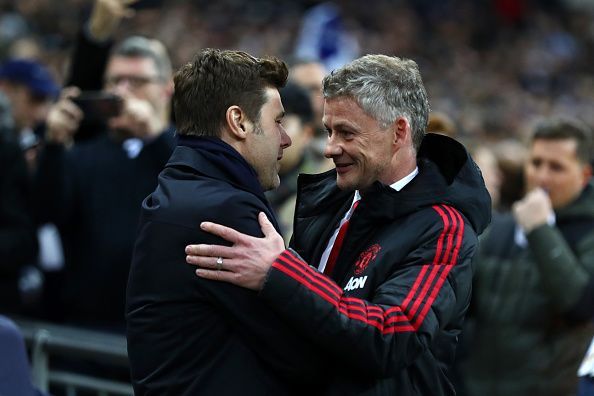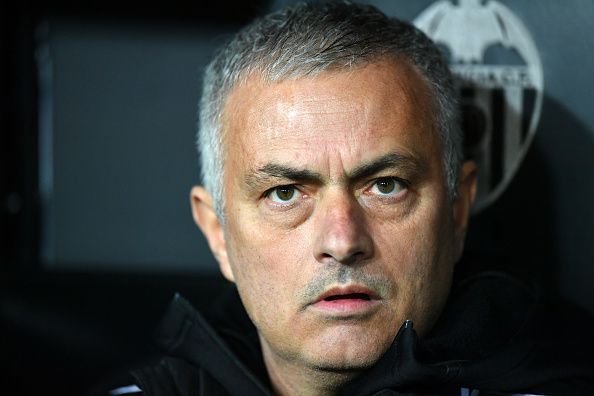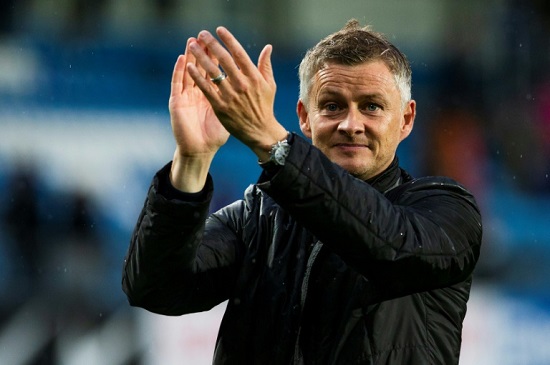This post has already been read 2108 times!
The feel-good factor is back at Old Trafford. Ole Gunnar Solskjaer joined a Manchester Unitedteam that was hanging on by life support, and somehow transformed it into the free-flowing, swashbuckling attacking side it was 6 years ago.
It’s safe to say that United are now as close to an Alex Ferguson side as they have been since the legendary Scot retired.
And it’s not just the atmosphere around the club – which seems to be the predominant transformation that Solksjaer has been credited with. Against Spurs, he also displayed that he could tactically out-manoeuvre an opponent when he had to.

Invariably, though, the conversation keeps shifting to his inevitable successor at Old Trafford. Mauricio Pochettino has been touted, and is the favourite among fans. Max Allegri’s name has been in the ring, but rumours of Zinedine Zidane have died down since Mourinho’s sacking.
With perhaps the exception of Pochettino (thanks to Daniel Levy), Manchester United arguably had the financial clout to rope in any of those big names after the Portuguese boss departed.
The fact that Ed Woodward chose Solksjaer to steady the ship is an indication of the club’s hierarchy willing to try and take the club in a different direction, because it’s quite clear that their approach so far has been far from successful.
The big name strategy
Excluding Ryan Giggs’ 4 match-spell in charge, United’s managerial appointments since Ferguson departed include David Moyes, Louis van Gaal and Jose Mourinho.

There is a pattern here. United’s recruitment policies, in terms of both players and managers, have been to rope in some of the most influential people in the sport.
Van Gaal signed Radamel Falcao and Angel Di Maria, and Mourinho signed Paul Pogba, Zlatan Ibrahimovic and Henrikh Mkhitaryan. Together, the two managers spent more money on transfers in 5 years than Ferguson did in 26.
There seemed to be no coherent strategy in the wake of their last title-winning season, no long-term vision or groundwork laid out for the future, other than to try and bring in every big name available, and hope that they could somehow drag the club out of the quagmire it had sunk into.
This was in stark contrast to the likes of Tottenham and Manchester City – clubs that have experienced tremendous success in recent seasons because their entire structure is built to accommodate and propagate the vision of Pochettino and Guardiola.
Some people would argue that teams like Chelsea have performed reasonably well with Roman Abramovic’s ruthless, rotating-door policy of changing managers, but the Blues have never had to cope with the hangover that accompanies a change in management after 26 years.
Because while Ferguson might have steered the club from near-obscurity in the 80’s to the global empire that it is today, he also unintentionally doomed several high profile names that would follow in his footsteps.
Forcing ideologies
In spite of the silverware that van Gaal and Mourinho brought to the club, neither of them can be classified as anything close to a success. The pressure and expectations that come with living up to the legacy of the greatest football manager of all time broke both of them.
Let’s not forget that they themselves were once in a position to contend for that title. Van Gaal has won 20 major managerial honours, and Mourinho won the Champions League with two different teams, apart from leading Inter to an unprecedented treble in 2010.
Those are impressive resumes. And yet, after their disastrous spells at United, no major European giant will hire them.
This is partly because both coaches tried to impose their individual philosophies on their squads, when Alex Ferguson’s methods had already been ingrained into every pore of the club. The transition was never going to be pretty, but no one could have quite predicted the depths to which the Red Devils have fallen in recent years.
Going back to the old ways
This is perhaps what sets Solksjaer apart. The Norwegian spent 11 seasons under the tutelage of Ferguson, and his press conferences so far at Old Trafford have shown that he is a devout disciple of his former boss.
He brought Mike Phelan back after 5 years, and his ego won’t stop him from consulting Ferguson on every possible issue.
Maybe this is what Manchester United need in their next permanent boss. Someone who has an innate understanding of what the club is about, and someone who is comfortable working in the perpetual shadow of Ferguson.
Solksjaer still has a good 4 months to audition for the role, and may yet show Woodward why he deserves to stay. He is still contracted to Molde, but that should hardly be a problem.
At this point, it increasingly feels like bringing in another Mourinho or van Gaal would only propel the club into the same old cycle of negativity. Solksjaer’s infectious enthusiasm has put the smiles back on the players and the fans, and they deserve more than that.



